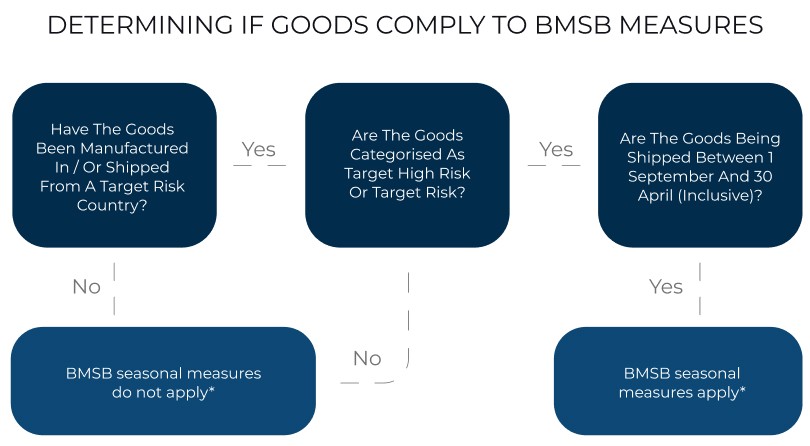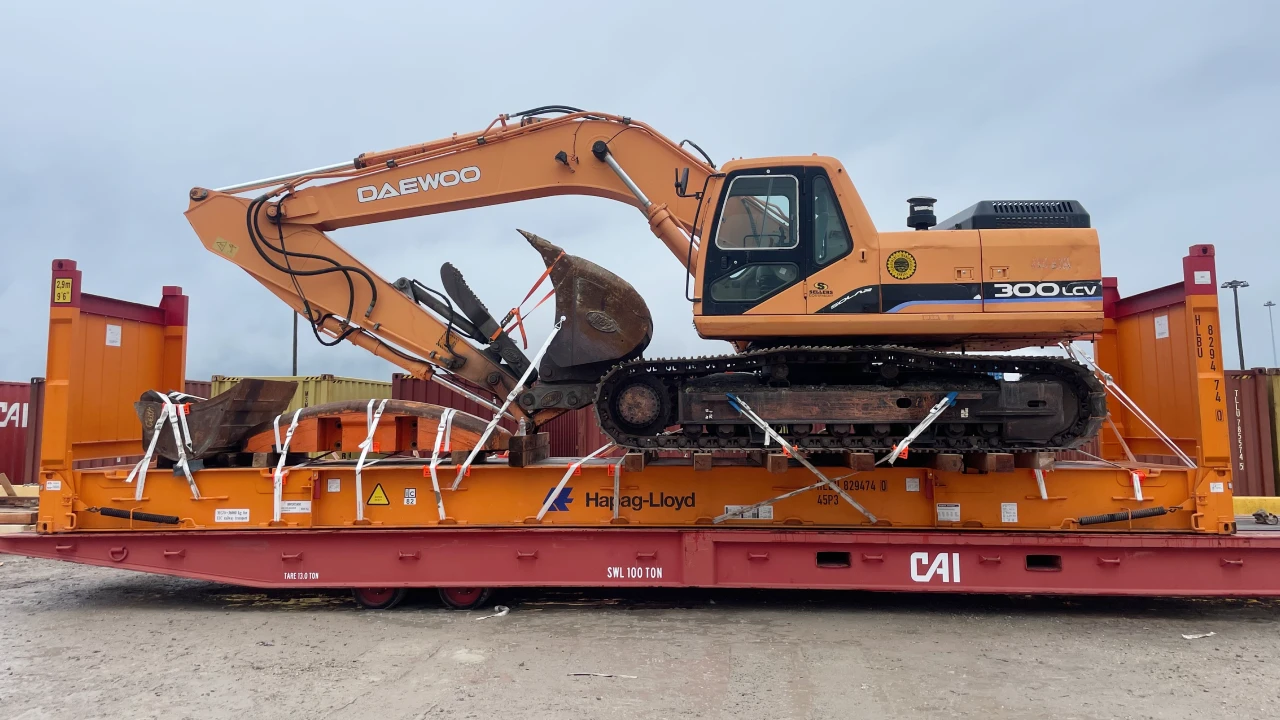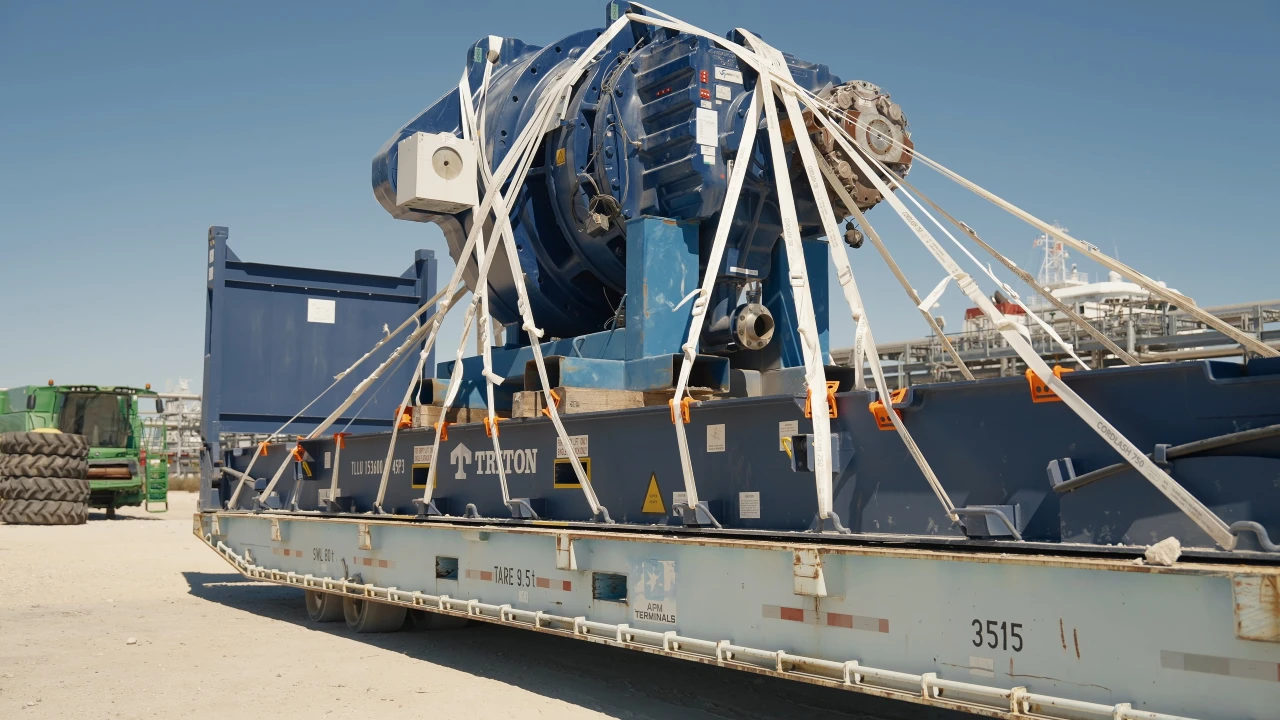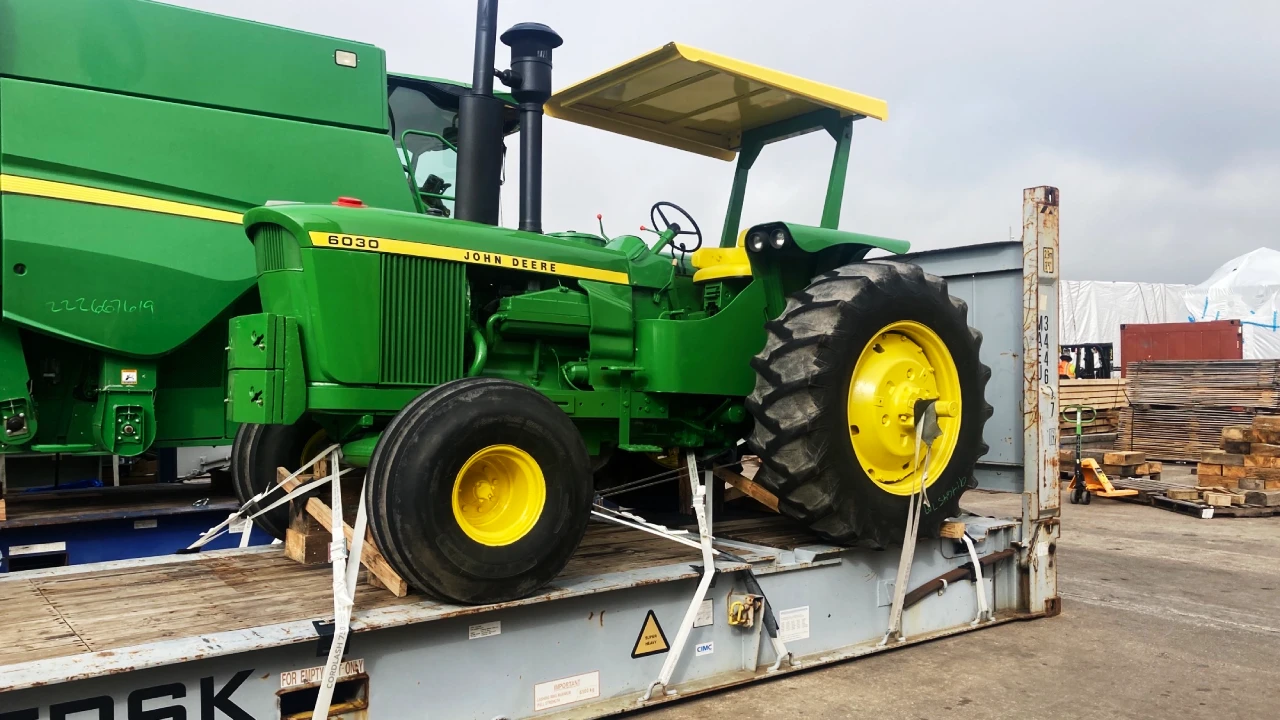
When engaged in international shipping in Australia and New Zealand, the Brown Marmorated Stink Bug (BMSB) presents a significant risk, posing challenges to global trade and biosecurity. Understanding the intricacies of BMSB-related risks is critical for ensuring compliance with international regulations and maintaining the integrity of cargo. This guide covers the importance of cargo fumigation and the targeted measures required to effectively mitigate risks associated with the BMSB.
BSMB and Its Harmful Impact

In 1996, the BMSB, not native to North America, first appeared in Allentown, Pennsylvania. Since then, destructive pests have invaded at least 40 states, Canada, and even Europe. The BMSB feasts on agricultural crops and ornamental plants, inflicting significant economic damage.
For instance, apple losses in the mid-Atlantic region once exceeded $37 million in a single year, and outbreaks in Maryland and New Jersey wiped out entire peach harvests in 2010.
This makes clear the concerns of the Australian and New Zealand governments about BMSB. Australia and New Zealand have bio-diverse environments that are susceptible to invasive species, and the above examples show clear cause for concern.
What is the Fumigation of Cargo?
Cargo fumigation, crucial in international shipping, involves using gaseous pesticides to eliminate pests like the Brown Marmorated Stink Bug from goods and containers. This process is essential for protecting ecosystems and meeting global biosecurity standards, becoming increasingly indispensable as regulations intensify to combat BMSB risks.
Why is Cargo Fumigation Necessary?

Cargo fumigation is necessary in international shipping to prevent the proliferation of pests and to comply with regulations. It addresses the threat of the Brown Marmorated Stink Bug, ensuring cargo safety and protecting destination ecosystems.
Fumigation helps shippers meet strict biosecurity standards, curbing the spread of invasive species like BMSB. Countries such as Australia and New Zealand have stringent requirements for cargo fumigation, often due to concerns about protecting their native ecosystems and agricultural sectors from non-native species.
Compliance with international regulations like the IMO International Maritime Dangerous Goods Code and national laws underscores the necessity of fumigation for safe and compliant international shipping.
Season Measures – Brown Marmorated Stink Bug (BMSB)
Seasonal measures are essential in managing BMSB risks in international shipping, particularly during the high-risk months between September and May. During this period, strict regulations, including enhanced inspections and mandatory fumigation for cargo from high-risk countries, are implemented. These measures aim to prevent the infestation and spread of the BMSB by intercepting them before shipment or upon arrival.
Target Risk Countries for the BMSB
The identification of target risk countries for the BMSB is a critical component of global shipping and biosecurity. High-risk countries, such as the United States, Russia, Italy, Greece, and several others in Europe and Asia, have been identified as major habitats for the Brown Marmorated Stink Bug.
Shipments originating from these countries are subject to increased scrutiny and stringent fumigation protocols. This necessitates comprehensive pre-shipment treatments and inspections to ensure compliance with international biosecurity standards.
The implication for shippers is clear: heightened vigilance and adherence to these protocols are necessary to prevent BMSB infestation and avoid delays or rejections at the destination ports.
Target Risk Countries
The following countries below have been categorized as target risk:
- Albania
- Andorra
- Armenia
- Austria
- Azerbaijan
- Belgium
- Bosnia and Herzegovina
- Bulgaria
- Canada
- Croatia
- Czechia
- France
- Japan (heightened vessel surveillance only)
- Georgia
- Germany
- Greece
- Hungary
- Italy
- Kazakhstan
- Kosovo
- Liechtenstein
- Luxembourg
- Montenegro
- Moldova
- Netherlands
- Poland
- Portugal
- Republic of North Macedonia
- Romania
- Russia
- Serbia
- Slovakia
- Slovenia
- Spain
- Switzerland
- Turkiye
- Ukraine
- United States of America
- Uzbekistan
Targeted Goods
Goods like agricultural products, machinery, vehicles, and equipment are particularly vulnerable to BMSB infestation, requiring strict fumigation and inspection.
High-risk items such as used vehicles and large machinery, which provide hiding places for BMSB, along with textiles and building materials, are highly scrutinized to prevent BMSB spread in international trade.
Among the other high-risk goods are:
- Cork and articles of cork
- Ceramic products
- Glass and glassware
- Iron, copper, nickel, aluminum, lead, zinc, and articles thereof
- Electrical machinery and equipment
- Railway and tramway locomotives
- Aircraft and spacecraft
- Ships and boats
Treatment Requirements
To manage BMSB risks, treatment requirements vary by cargo type. High-risk items like vehicles and machinery undergo thorough fumigation, often with Methyl Bromide or Sulfuryl Fluoride. Agricultural products may need heat or cold treatments.
General cargo typically receives surface spraying or space fumigation, all conducted by certified operators to meet international standards.
What Are the Eligibility Criteria?
Eligibility for BMSB fumigation treatments depends on cargo origin, type, and destination biosecurity rules. High-risk country goods, especially vehicles, machinery, and agricultural products, require stringent protocols. Treatment types also vary with the cargo’s packing method and condition (new vs. used), ensuring effective BMSB risk mitigation.
Additional Services Offered by Atlantic Project Cargo
At Atlantic Project Cargo, we specialize in overcoming the challenges associated with the Brown Marmorated Stink Bug (BMSB) in international shipping.
Our services include ensuring EPA and DOT import compliance and providing meticulous export cargo fumigation to mitigate BMSB risks.
We’re skilled in USDA equipment inspection, guaranteeing that your shipment adheres to all agricultural and biosecurity standards.
Our expertise extends to customs brokerage, streamlining your international logistics, and navigating complex biosecurity regulations.
Furthermore, Atlantic Project Cargo offers robust cargo insurance to protect your shipments regardless of their transit status, and customs brokerage services, where we handle TIB support, ISF filing expertise, and end-to-end handling on your behalf.
Our comprehensive support also includes equipment loading and disassembly services, ensuring careful handling of your shipment.
At Atlantic Project Cargo, we’re your reliable partner for handling all customs and managing international heavy and oversized freights. You can reach out to our dedicated team at +1 (305) 224-1975 or email us at [email protected]
Read More


